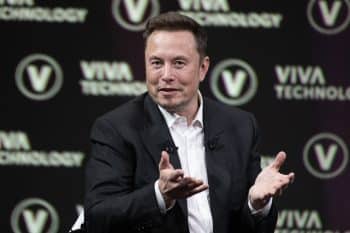Home » US business news • US Employment News » Ford cuts 3000 jobs to focus on electric vehicles
Ford cuts 3000 jobs to focus on electric vehicles
https://www.whatjobs.com/news/usa/us-business-news/ford-cuts-3000-jobs-to-focus-on-electric-vehicles

By Nithya Bose in US business news, posted August 23, 2022

Ford is to cut another 3,000 jobs as it continues to reduce costs to focus on producing more electric vehicles.
The move represents a one percent cut to its 183,000 worldwide staff and will largely focus on contractors and staff in Michigan.
Roles in Canada and India are also set to be cut.
READ MORE: FURNITURE RETAILER WAYFAIR TO CUT 870 JOBS
Around 2,000 positions will be lost in Michigan, with 1,000 contractors also set to go.
In an internal memo, the automaker said it would begin alerting affected salaried and agency workers of the redundancies this week.
The move is part of the ongoing plan to sharpen the car company's focus on electric vehicles and the batteries that power them.
The email, signed by Executive Chair Bill Ford and CEO Jim Farley, stated Ford is revamping its operations and redeploying resources.
It is adopting new technologies that were not previously key to its business, such as building improved vehicle software.
The internal message said: “Building this future requires changing and reshaping virtually all aspects of the way we have operated for more than a century.”
Farley said Ford has too many staff and that the current workforce lacks the skills required to move to a portfolio of electric, software-laden automobiles.
Need Career Advice? Get employment skills advice at all levels of your career
He wants to cut $3 billion in yearly costs by 2026 in order to achieve a 10 percent pretax profit margin, up from 7.3 percent last year.
The new round of layoffs comes on the heels of a smaller batch in April, when Ford slashed 580 salaried staff.
Last month, it was revealed 8,000 staff would be cut as part of the move.
Ford, like many other major manufacturers, is investing heavily in electric vehicles in an effort to overcome the sales gap with Tesla.
The business has stated that it will invest around $50 billion in EV development through 2026, with a goal of two million global sales by that time.
Farley earlier this year split the firm into two divisions, one focusing on electric vehicles and sophisticated technology and the other on traditional internal-combustion-vehicle models.
He has said profits from the company's gasoline and diesel-engine vehicles will help pay for the switch, but that side of the business must run more effectively.
Source: The Wall Street Journal
Follow us on YouTube, Twitter, LinkedIn, and Facebook.














